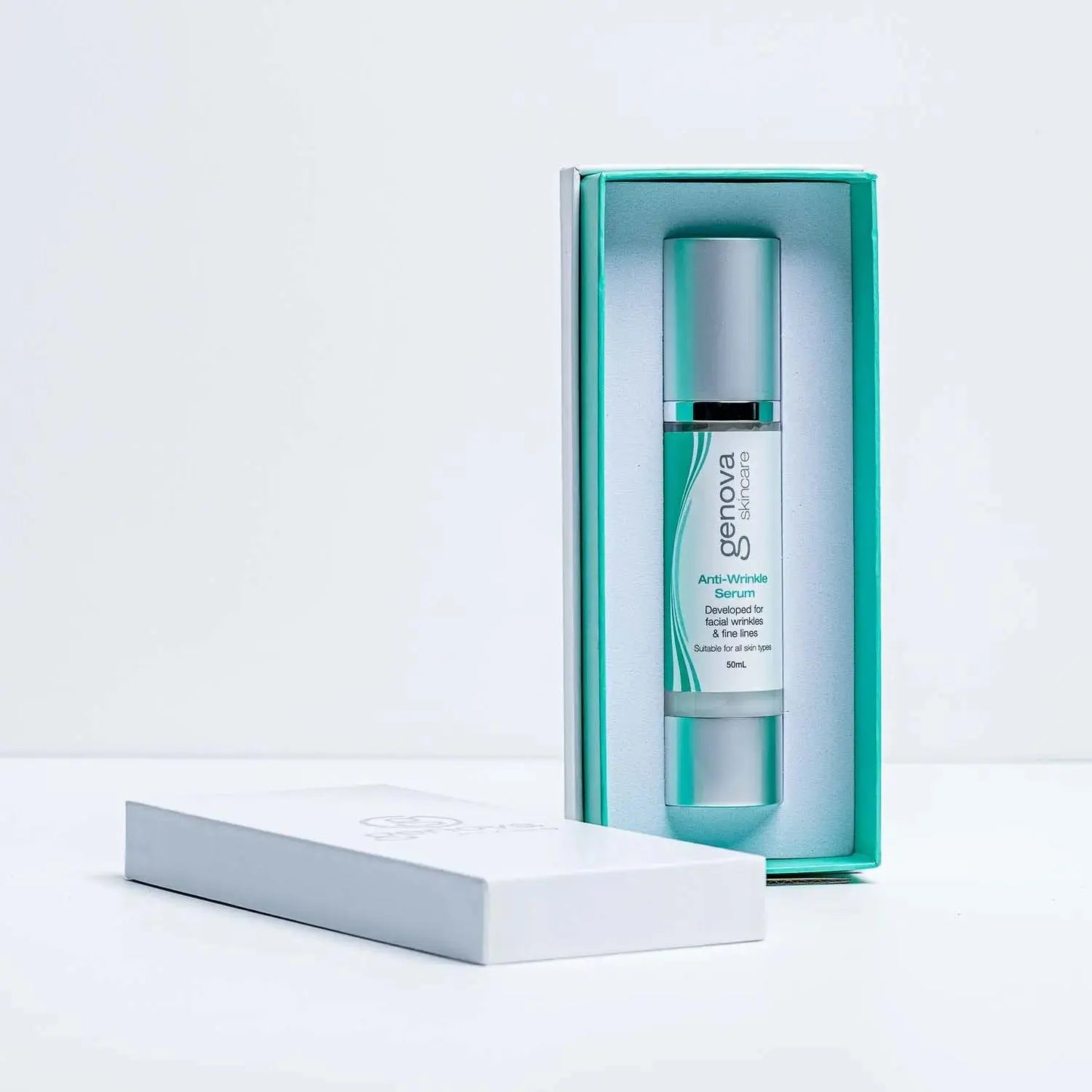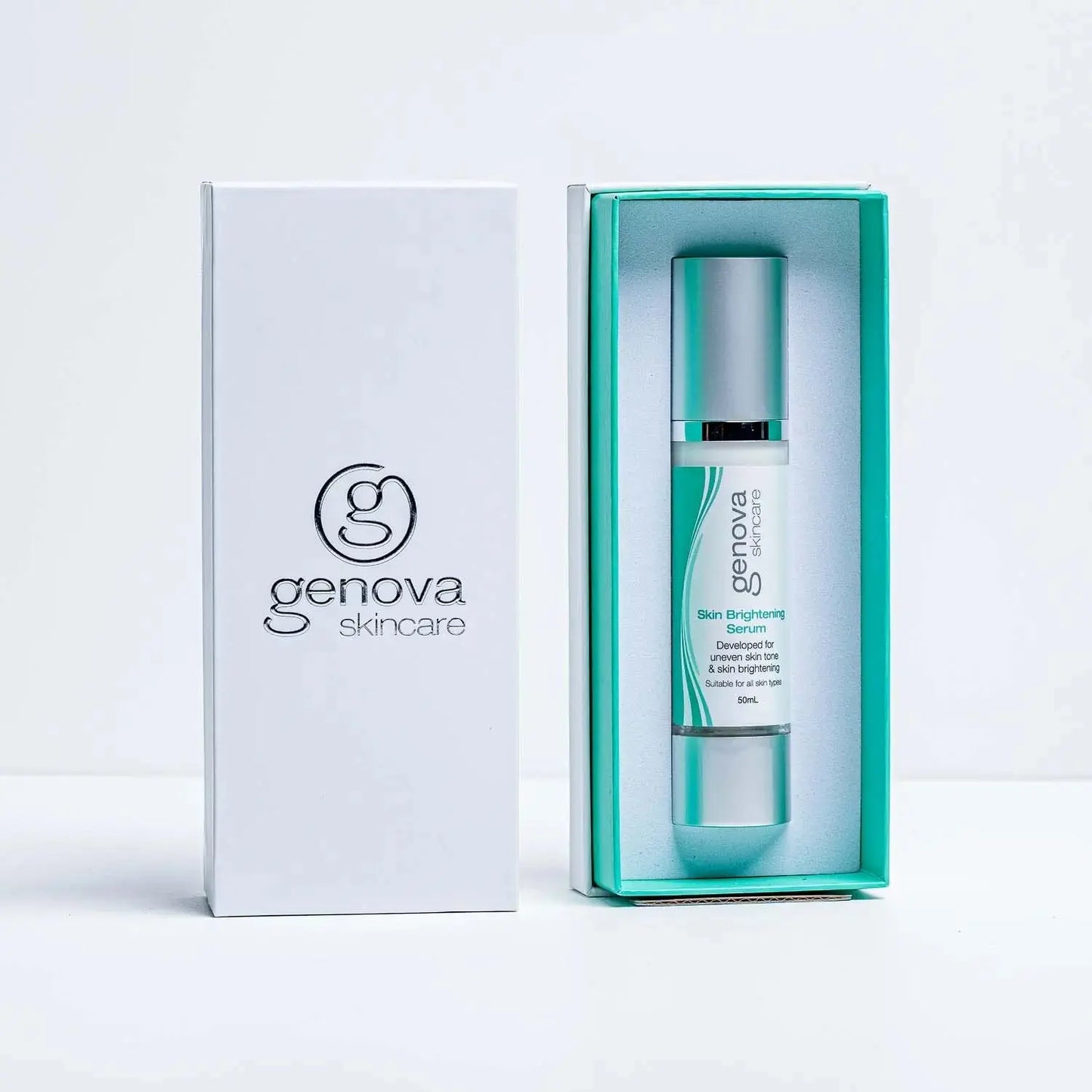Top Tips for Managing Menopause and Skin Changes: How to Prevent Dryness
Menopause (with its hormonal changes) can significantly impact your skin, leading to dryness and wrinkles. This article is a comprehensive guide to managing these changes, offering practical tips to keep your skin hydrated and healthy.
Key Takeaways
- Menopause leads to decreased estrogen, resulting in skin dryness, loss of elasticity, and increased wrinkles.
- Integrating hydration, gentle cleansing, and sun protection into your skincare routine can counteract dryness and maintain skin health.
- Lifestyle changes, including stress management, proper hydration, and consulting a dermatologist, can significantly improve skin condition during menopause.
Understanding Menopausal Skin Changes
Importantly, menopause can lead to a drop in estrogen levels, which can significantly affect skin moisture and texture.
As estrogen levels drop, the skin loses collagen and elasticity, becoming more prone to:
- dryness
- sagging
- the formation of fine lines
- wrinkles
- loose skin

This hormonal shift can leave your skin less supple and more vulnerable to environmental stressors.
The most noticeable changes often occur on the face and hands. The hands, in particular, lose moisture, collagen, and fat, leading to a more wrinkled appearance. As skin loses its youthful plumpness, it becomes more challenging and dryer, with visible wrinkles becoming more pronounced, especially around the eyes and mouth.
Importantly, understanding the changes that menopause brings to your skin is crucial. Developing this knowledge allows you to adapt your skincare routine effectively, taking proactive steps to address dryness and maintain a glowing complexion.
Hydrating Your Skin
Hydration is a powerful tool for combating the dryness of menopausal skin changes. Typically, after menopause, the skin’s moisture retention decreases significantly. Ingredients like hyaluronic acid, known for their moisture-retaining properties, can be game-changers for dry skin.
Use a fragrance-free moisturiser, as mature skin often becomes more sensitive. Apply it while your skin is still damp, especially after bathing, to lock in hydration. Heavier creams can offer a more substantial barrier against moisture loss.
Consistency matters. Make daily moisturising a habit, using products with hydrating agents like glycerin or hyaluronic acid. This simple step can significantly improve skin texture and appearance, helping to prevent wrinkles and maintain a youthful glow.
Gentle Cleansing Routine
A gentle cleansing routine preserves the moisture barrier in aging skin. Foaming cleansers are recommended for dry, mature skin, as they hydrate while cleansing. Choose products that maintain the skin’s natural barrier, especially for thinning skin.
Avoid harsh cleansers that strip away natural oils, making dryness worse. Instead, choose hydrating cleansers that clean without compromising your skin’s health. This approach reduces the risk of skin injuries and promotes overall skin health, leaving it refreshed and balanced.

Sun Protection is Key
Sun protection becomes even more important during menopause. As you’ll quickly understand, sun exposure can worsen wrinkles and age spots. Menopausal skin loses its natural defences, so using a broad-spectrum sunscreen with an SPF of at least 30 is essential to protect against skin damage.
Apply sunscreen to all exposed areas, including the neck and hands, for comprehensive protection. Daily use of sunscreen helps prevent new age spots and reduces the risk of skin cancer. The sun’s harmful rays can penetrate through clouds and windows, so make sunscreen a daily habit regardless of the weather.
Diligently protecting your skin from sun-damaged skin helps maintain its health and appearance, reducing visible wrinkles and keeping it youthful and vibrant.
Incorporating Antioxidants
Antioxidants are crucial in strengthening the skin from within, which is particularly important during menopause. A diet rich in vitamins C and E in fruits and vegetables offers significant protective benefits for your skin. These nutrients combat the effects of aging and help maintain a youthful appearance.
Besides dietary sources, skincare products containing antioxidants can enhance the moisturising effect on aging skin. Regularly using these products can help reduce visible wrinkles and improve overall skin health.
Avoiding Hot Water
Notably, while a hot shower may feel soothing, it can strip your skin of essential oils, worsening dryness. Hot water can also cause skin inflammation, leading to redness, itchiness, and peeling. To maintain hydration, rinse your face and body with lukewarm water instead.
Shortening your shower duration to 5-10 minutes can also help prevent moisture loss. These minor adjustments can significantly preserve your skin’s natural moisture and prevent dryness.

Boosting Moisture with Humidifiers
A humidifier can significantly help maintain skin hydration, especially in low-moisture environments. Humidifiers enhance indoor humidity levels, which is crucial for preventing dry, itchy skin. This is particularly beneficial during winter months or in dry climates.
Maintaining optimal humidity levels in your home helps restore moisture lost to dry air. Regular humidifier use can significantly improve your skin’s hydration, making it a valuable addition to your skincare routine.
Targeted Treatments for Dryness
Targeted treatments can significantly improve persistent dryness and wrinkles. Dermatologists often recommend prescription-strength retinoids as part of a wrinkle treatment plan. These products enhance skin firmness and reduce the appearance of fine lines and wrinkles.
Injectable treatments like Botox or dermal fillers are also commonly recommended for smoothing facial wrinkles. Topical antioxidants can further reduce the appearance of wrinkles and fine lines. Combining various treatments enhances their effectiveness, offering a comprehensive approach to facial rejuvenation and managing skin aging.
Hydrating retinol products containing humectants help retain moisture, combating dry skin. Gentle formulas are available for sensitive skin, ensuring effective treatment without irritation. Including these targeted treatments in your skincare routine can help achieve smoother, more youthful-looking skin.
Lifestyle Changes for Better Skin
Lifestyle changes can be a game-changer in improving skin health during menopause. Stress management techniques like yoga and meditation enhance skin barrier function by reducing stress-induced damage—adequate 7—to 9 hours of sleep significantly improves recovery and overall health.
Regular physical activity improves blood flow, enhancing hydration and overall skin health. Proper hydration, through drinking water and using hydrating products, mitigates the adverse effects of hormonal changes on the skin. These lifestyle adjustments are essential for maintaining a healthy, glowing skin complexion.
Consulting a Dermatologist
A dermatologist can assess your skin and recommend appropriate treatments tailored to your needs. Based on your skin condition and goals, they may suggest a combination of treatments for optimal results. Regular consultations help monitor changes and adjust your skincare routine accordingly. Seeking professional help ensures you receive the best care for your skin during this transitional period.

Summary
Managing menopausal skin changes involves a multifaceted approach, including hydration, gentle cleansing, sun protection, and antioxidant use. Lifestyle changes and targeted treatments can further enhance skin health. By adopting these practices, you can maintain a healthy, glowing complexion despite the challenges of menopause.
Remember, every step you take towards better skin care is a step towards embracing this new chapter of life with confidence and grace. Stay consistent with your routine, seek professional advice, and enjoy the journey to healthier, more radiant skin.
Frequently Asked Questions
What are the most common skin changes during menopause?
Dryness, thinning, loss of elasticity, and increased wrinkles are the most common skin changes during menopause. These changes result from a decrease in estrogen levels. Addressing these changes is essential for maintaining skin health during this transition.
Why is sunscreen important for menopausal skin?
Sunscreen is crucial for menopausal skin. It protects against sun damage, which can exacerbate wrinkles and age spots. For optimal protection, use a broad-spectrum sunscreen with at least SPF 30.
When should I consult a dermatologist about my menopausal skin?
If you notice persistent dryness, severe wrinkles, or any other concerning changes in your menopausal skin, consult a dermatologist. Addressing these issues early can lead to effective treatment and better skin health.








